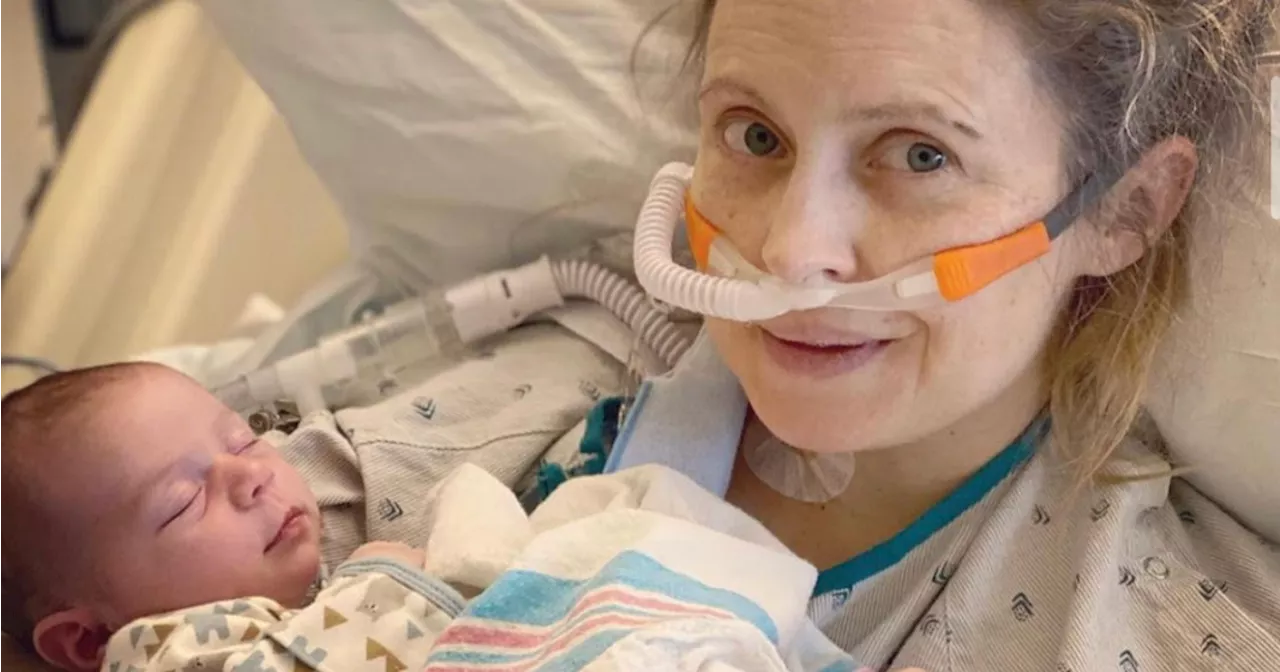A new mother, Taylor Coffman, recently shared her harrowing experience of battling life-threatening complications following a C-section. Her ordeal included multiple surgeries, organ failure, and a prolonged separation from her newborn daughter. The challenges she faced in the hospital highlight the complexities of maternal health care and the emotional toll on families during such critical times.
Coffman underwent a C-section four weeks before her life-threatening complications began. Immediately after the delivery, she experienced severe medical issues, including rapid bleeding and plummeting vital signs, which necessitated another surgery. “I didn’t even get to hold my baby,” she recalled. What followed was a month-long struggle in the hospital, with Coffman cycling in and out of the ICU as her condition deteriorated.
During her time in the hospital, her husband, Zach, was at home caring for their newborn, navigating the challenges of a small apartment while worrying about his wife’s life. “He got ‘the talk’ from a doctor in the middle of the night, being told that I might not make it home,” Coffman said. This period was marked by uncertainty as medical staff worked to understand her condition, which was complicated by multiple organ failures, including heart and kidney issues, alongside severe sepsis and pneumonia.
Coffman’s experience in the ICU involved three rounds of intubation and numerous consultations with various specialists, including cardiologists and infectious disease experts. “It felt like some absurdist theater play,” she remarked, as each doctor provided different perspectives on her health. Frustrated by the lack of coordinated care, she took an active role in managing her treatment. “I realized, if I was going to live, I’d have to project-manage my recovery,” she explained.
As her symptoms progressed, Coffman learned that her kidneys were failing, leading to a toxic buildup in her system. Despite being in a top-tier hospital, she faced a delay in receiving necessary dialysis due to a shortage of machines. “I was beyond angry and frustrated,” she stated, highlighting the systemic issues within healthcare that can exacerbate patient suffering.
Coffman’s journey ultimately led to a diagnosis of aHUS (atypical hemolytic uremic syndrome), a rare condition that often remains hidden until a trigger, such as childbirth, activates it. This diagnosis provided clarity after weeks of confusion but also underscored the precarious nature of her health.
Today, Coffman is managing her condition with regular infusions every eight weeks to prevent further complications. While she has regained some kidney function, she is now classified with stage 3 kidney disease. Reflecting on her experience, she emphasized the importance of patient advocacy. “I learned the importance of trusting myself when something is wrong,” she said, urging others to engage actively in their healthcare.
Coffman has since returned home to her family in Santa Monica, CA, and is dedicated to raising her active toddler. Her story serves as a poignant reminder of the critical need for better communication and coordination in healthcare, particularly for new mothers facing serious complications.
The lessons Coffman learned during her battle have reshaped her view on healthcare, advocating for patients to embrace their role in their treatment. “I respect boundaries and I’m kind, but I’m insistent,” she concluded, emphasizing that proactive engagement can significantly improve health outcomes.
